I first met Micah Robbins in a class at Texas State on the Romantic poets. In some ways, the issues that came up in the class around poets and publication laid the groundwork for the friendship that followed, as we continued to discuss these things long after the class was over. I was there working on my MFA in poetry; Micah was working on an MA in literature, with a focus on the Romantics and Samuel Taylor Coleridge in particular. We talked about the small press poetry scene and what I knew of it from my time in San Francisco. I was attempting to refashion habenicht press with a new journal, kadar koli. Micah caught the bug and began Interbirth — the name taken from a line in a Gary Snyder poem — and very quickly, learning with the great Clifton Riley in the art department at Texas State, produced books that far outstripped anything I’d done in the years I’d been publishing and editing habenicht.
*
The thesis of Nicholas Carr‘s new, bestselling book The Shallows is that the Internet is actually “rewiring” our brains to think and behave differently. In Chapter 4, “Deep Reading,” he points out that the book as we know it has only been with us for about 500 years — since Gutenberg — a very short portion of history, indeed of literacy itself. Carr argues it’s thanks to the press and wide availability of texts that it spawned that the brain was rewired from its “natural state” of distraction in the first place. Compressing a great many involved and complicated fields of research, such as the history of the book, nationalism, linguistics, and the neurological findings that underwrite his entire argument, he winds up attributing a whole slew of important developments to the book: the birth of syntax… modern notions of authorship… the ability to make complex, formal arguments which could be disseminated and weighed by others (hence, a compelling challenge to the hegemony of religious thought; hence, the Enlightenment, etc.)… “private reading”… the explosion of libraries and universities… But also: the rise of slander… pornography… and so: censorship… And for poetry, the loss of all that the oral tradition had forged: stress rhythm, alliteration, quantity, etc.
With the inevitable transition to digital texts, Carr argues, the ground is shifting once again. Widespread literacy will not go away — though how it breaks along class lines as the digital divide unfolds remains to be seen. The book will not go away — entirely — but our relationship to print has already irrevocably changed, a process that really began 100 years ago, though it only hit hyperspeed with the arrival of the Internet in the past 15-20 years. The point, says Carr, is that “deep reading” may be going away forever, “distraction” is back, and all the elements outlined above are bound to be impacted once again, no one knows how.
*
More recently — now separated by many miles, each of us toiling away on our PhDs — Micah and I had talked about old poetry newsletters such as Floating Bear and Rolling Stock. We’d been researching such journals, and each of us had been blown away by various discoveries, such as the juxtaposition of certain poets at certain moments, the first appearance of this or that poem, a provocative polemic, and the overall sense of aura, argumentation, and importance that the poetic concerns and problems raised in such journals seemed to have, even all these years later. We might be accused of romanticizing this lost past — of ditto machines and mimeo and cheap, DIY, high-volume printmaking — but at the same time, we share a certain sense of reality. Both of us have maintained blogs and published online, and we’ve debated the pros and cons of every kind of publication imaginable… In short, there’s nothing better than digital if you want to do it cheaply, and have it be immediately, widely available. We both know that.
*
Over the past couple days, as luck would have it, I’ve been attending a mini-conference here at UB, organized by the Early Modern faculty, called “Knowledge in the Making.” I’ve seen a presentation from Valerie Traub, U-Michigan, which gave an overview of the development of cartography as it emerged from the Middle Ages as a sort of art into the science it became in the Early Modern period — Traub challenged and troubled, however, the teleological notion of map-making as becoming more and more Cartesian, abstract, and grid-like, pointing out hybrids of the art- and science-based maps that extend forwards and backwards in time. Pamela Smith, Columbia, gave a remarkable presentation on her attempts to recreate experiential knowledge of Early Modern artisans — in short, she’s been working with a master metalsmith for many years to learn the craft of life casting from a number of 16th and 17th-century guidebooks. Tom Conley, Harvard, traced the intricate word-play in Montaigne‘s notebooks as they moved through various editions, and their relationship to the narrative elements of military maps.
*
All of these things reminded me again of the quality of the conversation that occurs between text and print, one that’s inherently different — I won’t say it’s better or worse — than the conversation involved with digital resources. It’s one that I think Micah and I, as well as the others who’ve gotten involved with his new venture SOUS LES PAVÉS, all agree is worth continuing to explore. The discussions that happen online, on poetry blogs and on poets’ Facebook pages and Twitter feeds, are fluid and immediate, generating hundreds of comments and pulling in folks from a vast range of backgrounds, geographical locations, and poetic concerns. Sometimes it feels refreshingly holistic, as if every poet with a keypad and access to the internet were going to get together and settle some issue once and for all.
For that very reason — perhaps echoing Carr — the discussions seldom stay focused. Facts and accuracy and courtesy quickly get sacrificed in favor of the quick hit, the tangent, even the occasional challenge to a duel. Moreover, the illusion of totality presented by the web is just that — an illusion. For every poet and publication Silliman has given a boost by the mere mention of it on his blog, there are many more that are excluded and cast into the (net)her regions. The argument is tilted, the game rigged in ways that appear seamless to those merely scanning the blogosphere, content with the usual names and faces and presses blinking back at them, with no eye to what’s simply not there. So, when a poet like Roger Snell, who’s toiled away for many years in conscious abhorrence of the trafficking in poetic notoriety available via the web, is suddenly mentioned in the comments thread to a review of a much better-known poet, some refuse to believe he even exists… (N.B.: I would link to this but it’s already been too-much discussed, and besides, the comments thread is no more.)
For this reason alone — getting the facts straight, slowing things down, looking once again at the juxtaposition of poet with poem with image with critical work, on the page and in a format that fits into your pocket, for perusal on the train or the john or wherever you happen to be — it’s worth digging under the stones of the digital veneer to see what’s still down there. It ain’t going away. I hope you check it out.




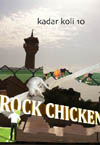


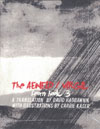
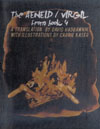

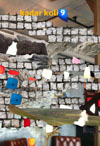
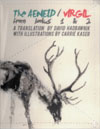




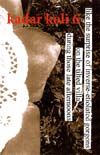
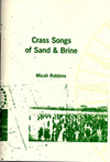
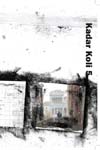
“So, when a poet like Roger Snell, who’s toiled away for many years in conscious abhorrence of the trafficking in poetic notoriety available via the web, is suddenly mentioned in the comments thread to a review of a much better-known poet, some refuse to believe he even exists… ”
Maybe because he was mentioned by Kent Johnson, someone who, uh, tends to make shit up.
jerry
so it’s like freud’s jewish joke: guy runs into another guy on a train, first guy asks second where he’s going: “crakow.” guy thinks about it, says, “you liar! you only told me that because you wanted me to believe you were going to lemberg! but in fact you’re going to crakow!”
in other words… kent sure has a lot of power over a lot of people’s minds…
Jerry wrote:
>Maybe because he was mentioned by Kent Johnson, someone who, uh, tends to make shit up.
Well, I don’t know about that “tend.” But Jerry’s charge makes me wonder: Why is it OK for fiction writers to “make things up,” but not for poets to make things up?
Is poetry (as oppsoed to fiction) a species of Truth Claim? Is that what poetry is? Is it subject to certain laws or protocols that define the “shit” (as Jerry puts it) that it can “make”? What (and for what) are these laws and protocols, if so? Who establishes them?
As the great Armand Schwerner once asked, “Why leave fictional experiement to the fiction writers?”
That’s a good question, I think!
Kent
Perhaps the notion of _metafact_ may be useful here . . . _artifact_ being the existence of some thing in physical space (like a so-called ‘actual’ person, i.e. Roger Snell — though of course these ‘actual’ beings emanate long after they abandon their physically existence) & _metafact_ . . . something that exists in our collective memory/understanding/curiosity/consciousness.
Consider Lars Erickson’s exploration of how Denis Diderot and Pierre Louis Maupertuis brought _metafact_ to bear on scientific inquiry through the use of the essay, thus destabilizing the conservative, factocentric production of knowledge (lacking in imagination and a respect for the beautifully slippery nature of human perception) & producing an incredibly productive moment of instability that lead to such theories as evolution . . .
Or Abe Pecks use of the term . . . _metafact_ . . . to describe the stunningly satiric yet forceful rogue newspaper THE REALIST in which fact and metafact combine to deliver a political/polemical punch to the gut . . . really a wonderful moment in American social discourse . . .
I would argue that thought itself emerges from a place of _metafact_ and that to deny the validity of such explorations — Kent Johnson’s included among them — is to engage in a fundamentally conservative, closed-down & turned-off assault on our collective potential for (re)invention & (r)evolution . . .
No?
A final thought . . .
Not surprisingly, David, the people you mention who questioned the physical existence of Roger Snell reveal one of the dangers of their conservatism: their loathing of _metafact_ can lead them to impulsively disbelieve and deny _artifact_ . . . a problematic situation to say the least.
Jerry, you seem to be in this camp . . . or at least you’re apologizing for those who are. But the thing to remember about Kent Johnson’s work is that it has and continues to make poetry move. Every time my old dog falls into a deep sleep he seems to stop breathing. I’ll go over and pet him to make sure he’s still alive, and sometimes I honestly can’t tell. So I’ll push him or yell out loud! (he’s half deaf) so I can see him twitch & the twitch lets me know we’re gonna be alright. Seems odd to tune out a poet who makes us twitch — as Kent has done — especially if that tuning out causes us to ignore the very real & vital presence of a poet like Roger Snell.
micah
thanks for the background on the idea of ‘metafacts.’ interesting to think about…
the bottom line for me is that i don’t have a problem with honest skepticism. i do have a problem with lazy thinking or, what’s worse, attacks on credibility and veracity masquerading as skepticism. i mean, it takes all of five seconds to discover that there are reviews of roger’s poetry on omnidawn and jacket. his book’s available on spd. sure, it’s POSSIBLE that someone would write a book of poems, get it published and reviewed here and there, and YEARS LATER unveil the name in a comments thread on silliman’s blog…. POSSIBLE… but this brings us back to freud’s joke. sometimes the obvious answer is in fact the one that makes the most sense.
besides, those whose thinking stops at ‘kent makes shit up’ are missing the ENTIRE point of the project. deliberately, i’d wager, in most cases.